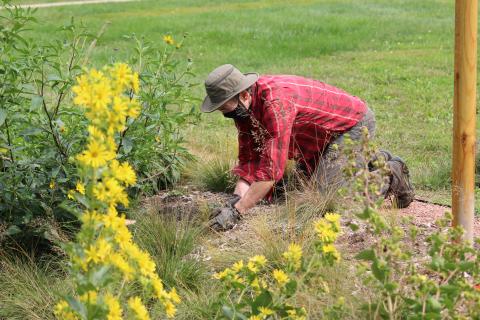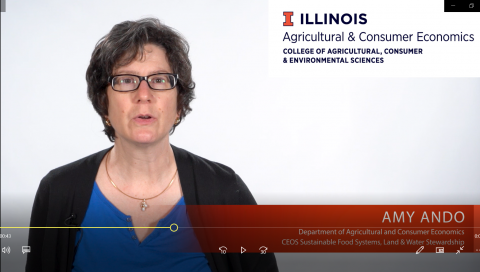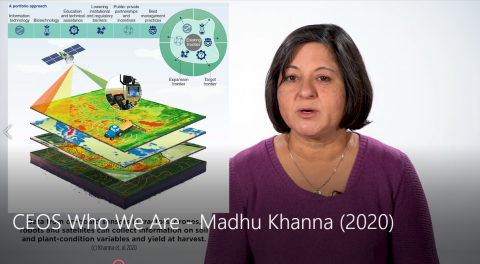This summer did not slow down for Meghan Selip, a recent ACE graduate whose interest in sustainability economics led to an internship with CEOS. Meghan got to work with the Ecology Action Center in Normal, Illinois this summer where she studied ways to reduce greenhouse gas emissions in McLean County. Primarily, she focused on the costs and benefits of utilizing hybrid vehicles and tree planting to improve air quality and how to best implement these strategies. The results will be put into a project proposal and presented to local officials to help advise them on what would be the best option for the Bloomington-Normal community.
Meghan is currently pursuing her Masters in Agricultural and Applied Economics in the ACE Department and is a member of the Student Sustainability Committee at Illinois. She aspires to discover innovative solutions that are economically viable in environmental and food sustainability.




